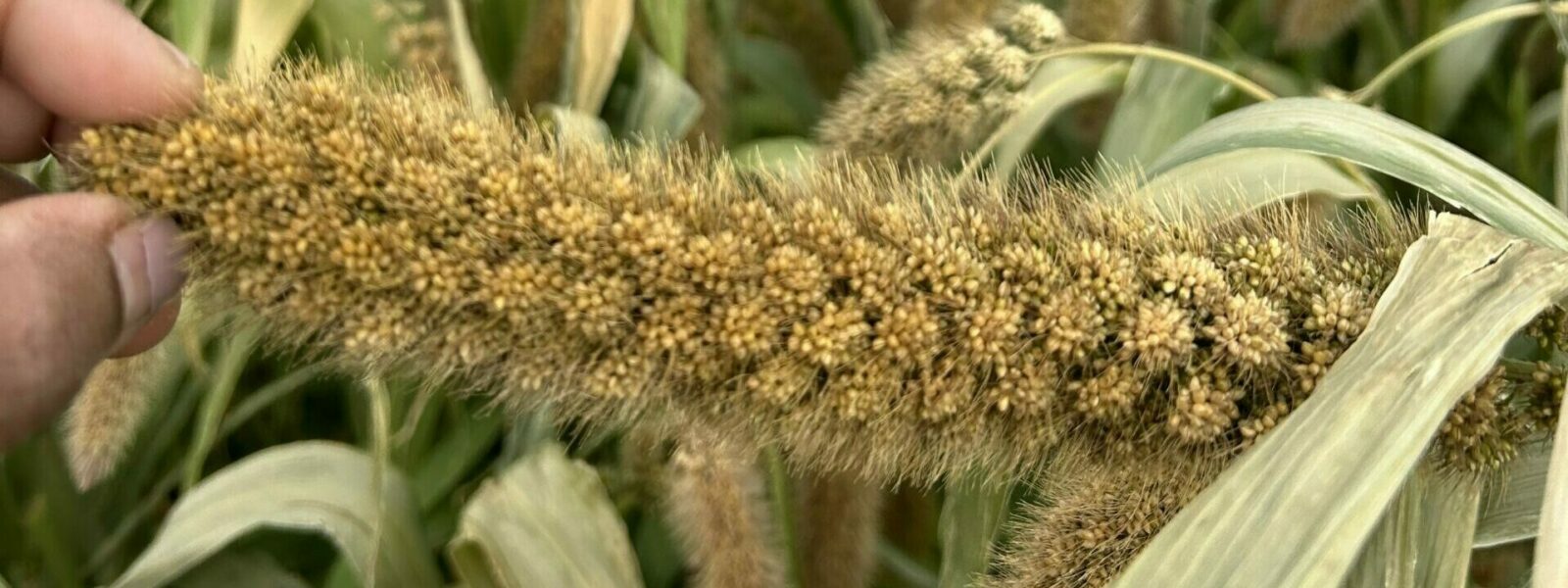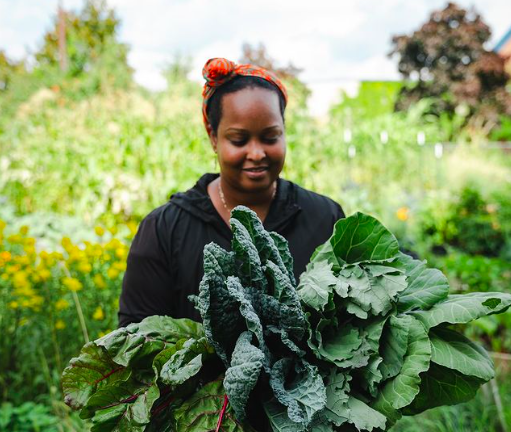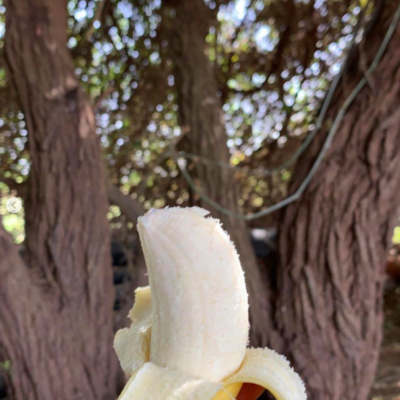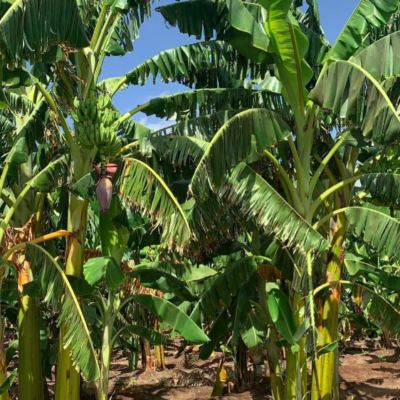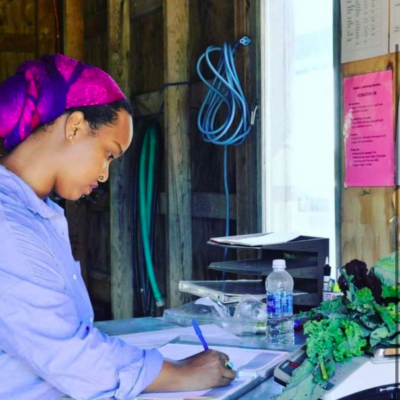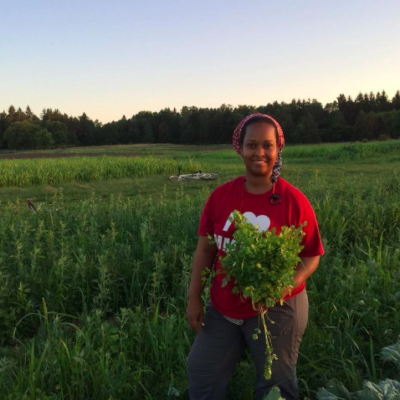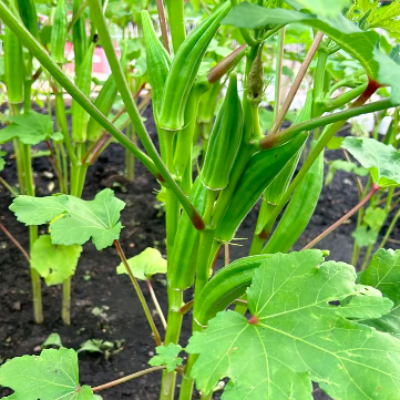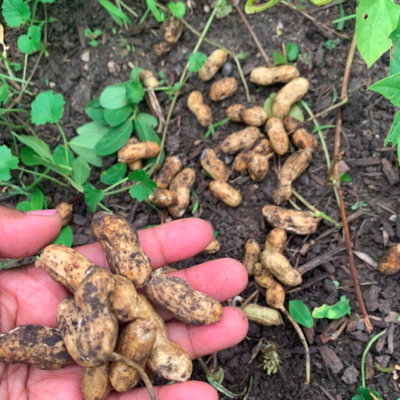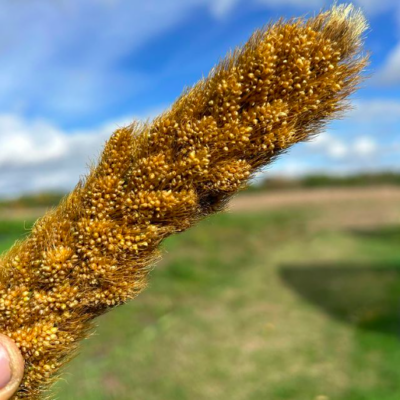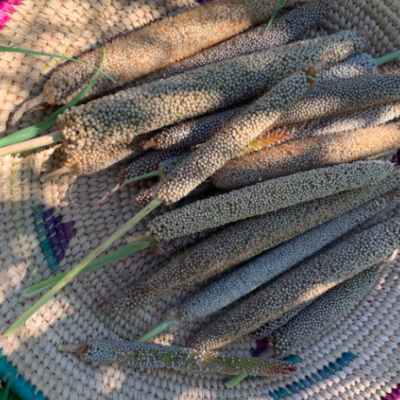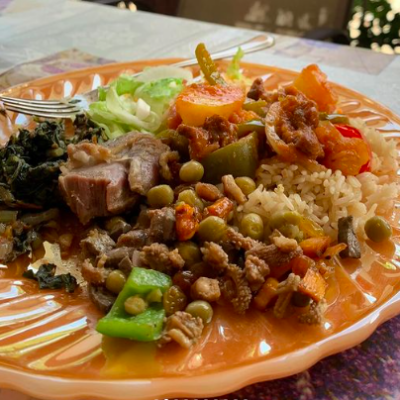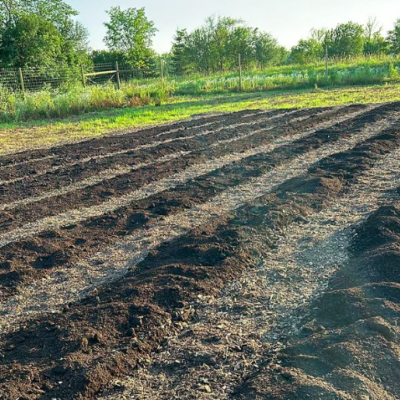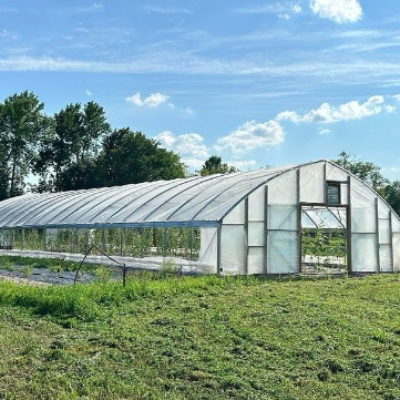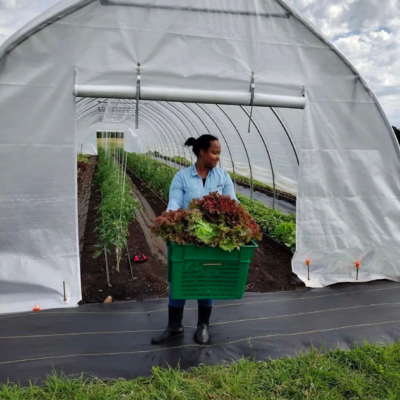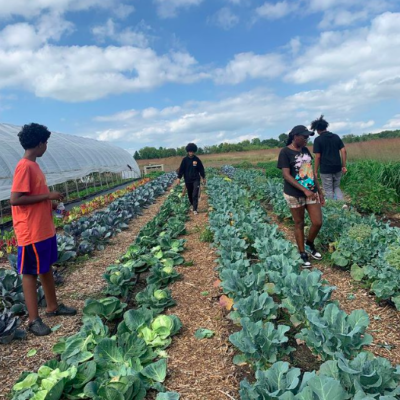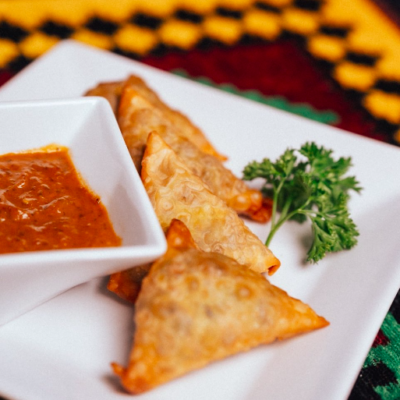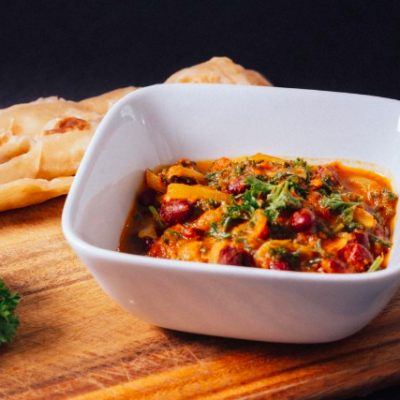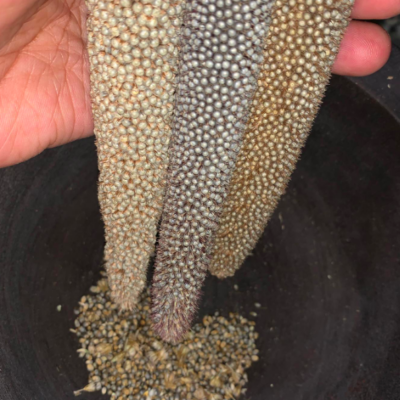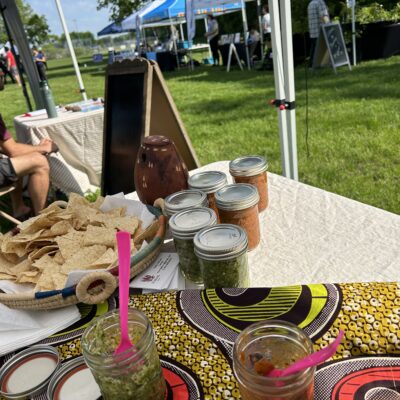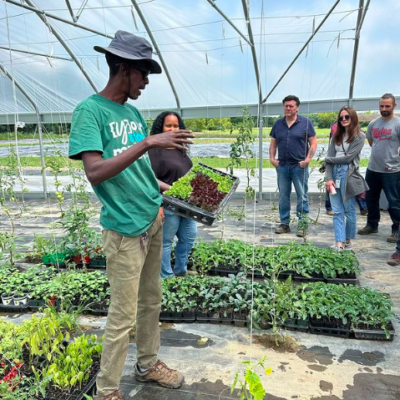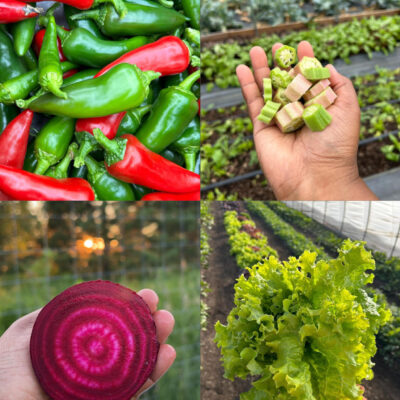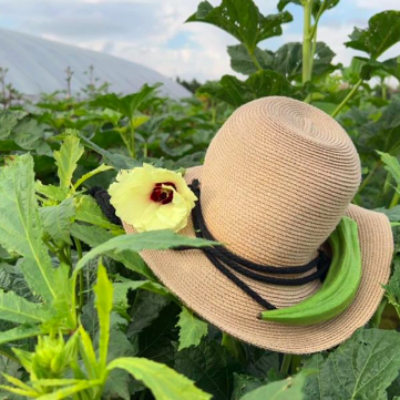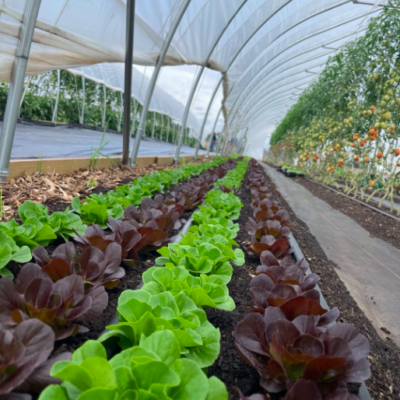Written by Naima Dhore; Local Farmer, Chef, MCFM-CF Hardship & Next Stage Grant Awardee.
It all began within the confines of our apartment, though the seeds were sown long before my journey to America…
As a child in my homeland of Somalia, I fondly recall my love for the outdoors and the delicious flavors of fruits like guava, mangoes, and bananas—sweet, refreshing delights that left an indelible mark on my palate. However, being thousands of miles away from these cherished foods in Minnesota and unable to recreate the experiences of my childhood for my own children, I was determined to find a solution.
I embarked on a journey of research, driven by the desire to learn how to cultivate food in limited space and within a short growing season. My husband and I initially attempted to grow herbs and micro-greens within our apartment, but soon realized the limitations of our setup.
This prompted us to delve deeper into our quest for knowledge, leading us to an incubator farm. Fast forward to the present and we find ourselves cultivating a diverse array of vegetables that grace the stalls of farmers markets. More importantly, we’ve embarked on a journey of experimentation with cultural crops, seeking to preserve and celebrate the culinary heritage of our homeland while adapting to our new surroundings.
- Okra is widely used in Somali cuisine
- Harvesting peanuts
Growing up, one of the foods that held immense cultural significance for me is millet. Back home I enjoyed this staple, but due to climate differences here in Minnesota, growing most varieties isn’t feasible. Millet in particular stands out as a staple food, known for its nurturing qualities, gluten-free nature, and adaptability to various soils. Its drought resistance and low maintenance make it invaluable. We often consumed millet porridge in the mornings, which kept us satisfied until the next meal.
- Millet growing in the field
- Millet ready for processing
As a farmer now, I strive to recreate meals from my childhood, reconnecting with my roots by cultivating culturally significant crops. Among my favorites are the small, sweet bananas enjoyed as is, and the larger ones, which complement meals like pasta or rice, adding balance to the rich flavors of our traditional dishes. A part of me desires to embrace familiar tastes and culturally significant ingredients to reconnect with my roots and nourish my body with wholesome, healthy food infused with the fusion of my upbringing.
One popular dish in the West originating from Somali cuisine combines rice and pasta, reflecting a blend of both cultures– rice being a staple, and pasta being introduced during Italian colonization. While I must confess to cooking an exceptional pasta dish with fresh ingredients, I add my own twist to honor both traditions.
It’s been nearly a year since acquiring 20 acres of land, and honestly, it feels surreal. The journey to find land with living space that caters to our operational needs and is closer to our market was very challenging. We embrace these challenges, avoiding shortcuts and working tirelessly — achieving much in a short time through literal back-breaking effort, investing every penny, and turning negativity into motivation. No excuses, no complaints – just patient, integrity-filled, transparent, and love-infused work.
Our family farm holds big dreams, with plans to create a welcoming space for family, friends, and the community to experience joy and savor good food. My advice to you: stay ambitious and persist in your goals and dreams, regardless of how long it takes. The sweet part is that we started growing food for ourselves, ensuring our kids appreciate where their food comes from and nature. Watching our kids grow up on a farm makes me feel like the proudest parent. I’m immensely proud of my family and the positive contributions we’ve made and continue to make both in agriculture and our local food system.
- Sambusas & chutney made for farm visitors
- Beans & veggies with jabati Somali flatbread
Food has a unique ability to unite people regardless of the occasion. Here in America, access to foods that connect us to our roots is often limited and not readily available in the market. While our celebrations and rituals may not be the same, our community is known for its festive and vibrant nature, prompting us to be creative and make the most of every situation. For these reasons, over the years, I have been compelled to cultivate culturally significant foods and explore the culinary world by experimenting with both familiar foods from my upbringing and new ones that I have grown myself.
- Processing different types of millet
- Sampling chutney at the market
The millet which I’m hoping to grow now on my land holds a special place in my heart. It was a staple in my childhood diet and brings back many fond memories and immense joy. It has been a necessity for my health and is a great way to start the morning. As a child it was the one meal I would eagerly finish, and now my kids enjoy it just as much, often without realizing they’re eating millet. I encourage market customers to try new things and ask farmers about ways to prepare unfamiliar foods. If you are passionate about local food, regenerative farming, and sustainability, please follow our work and support local farmers and producers like myself.
- Naima & her husband Fagas giving a farm tour
- Vegetables grown on the farm
I am grateful for all the support we have received, especially last season when severe weather damaged the plastic roof on our high tunnel. I was able to request a Hardship Grant from MCFM-CF that helped us replace the plastic and gave us peace of mind. Emergency grants like this one truly help farmers like me recover from losses without additional stress. We also received a Next Stage Grant from MCFM-CF this season, which provided funding for cold storage for our crops post-harvest. We are fortunate to have such resources, and I hope to see many more farmers receive similar support. To learn more or to make a donation, click here.
This is an exciting time to explore and learn more about the work farmers are doing across the state in ways we’ve never seen before. I am honored and privileged to witness the changes happening in our local food system and all the exciting developments on the horizon. With the climate changing around us, farmers like myself are seeing new and unpredictable weather patterns and are experimenting with crops not typically found here. There are opportunities to expand our local markets and address gaps in our food system, particularly for communities that lack access to these important familiar foods.
love
naima
Naima will be joining us at MCFM for a Mill City Cooks live chef demo on September 21st in collaboration with Market Chef Jenny Breen. You can follow along for farm updates & upcoming markets on Facebook and Instagram!
